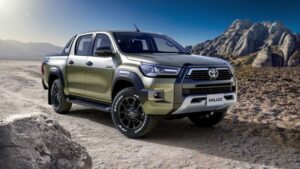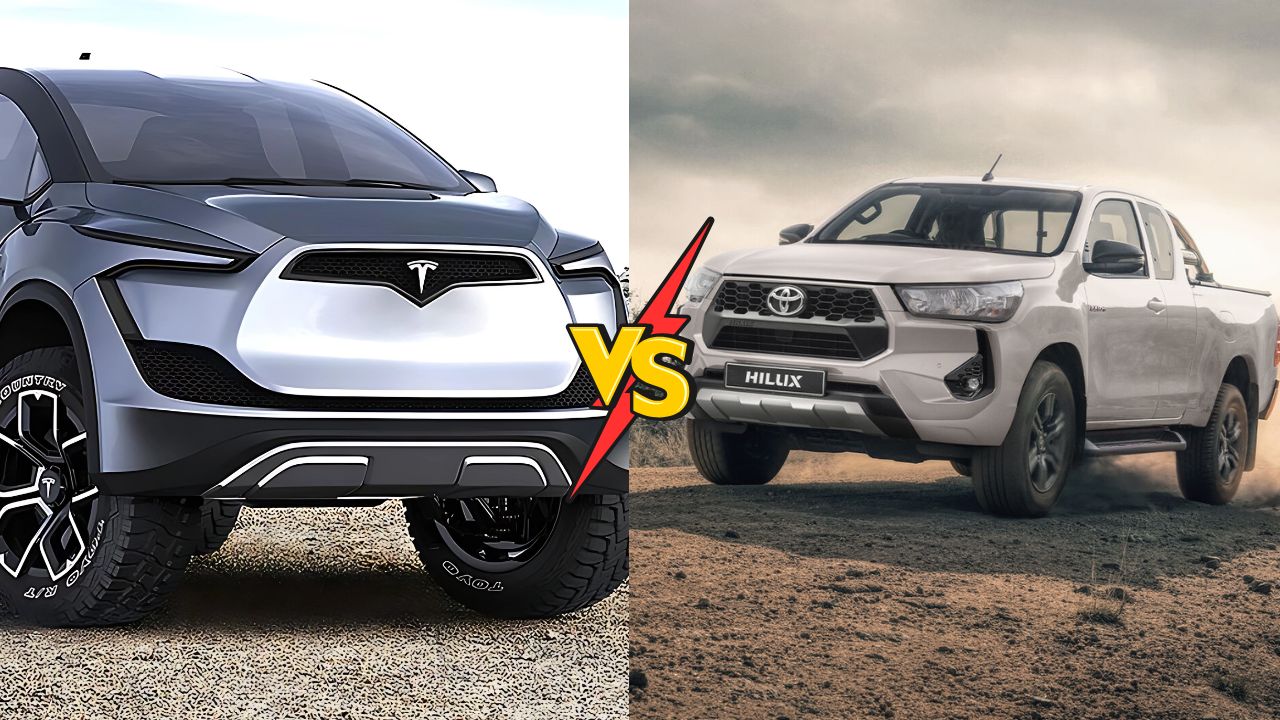The electric vehicle revolution has transformed many automotive segments, but one area remains surprisingly underserved: the compact pickup truck market. While Tesla has made headlines with its polarizing Cybertruck, the company’s ambitious but troubled full-size pickup has highlighted a significant gap in the market that could represent Tesla’s next major opportunity.
The Cybertruck Reality Check
Tesla’s Cybertruck has faced significant commercial challenges, with sales declining from 16,692 units in Q3 2024 to just 7,126 registrations in Q1 2025, falling behind the Ford F-150 Lightning. The vehicle has struggled with demand issues, leading Tesla to throttle production and offer substantial discounts, including 0% APR financing.

The Cybertruck’s troubles stem from several factors: its polarizing design, high price point starting around $82,000, and positioning as a luxury statement vehicle rather than a practical work truck. With Tesla’s Cybertruck inventory exceeding 3,700 units valued at over $300 million, the company is clearly struggling to find buyers for its angular behemoth.
The Compact Pickup Opportunity
While Tesla wrestles with its full-size pickup ambitions, a massive opportunity exists in the compact truck segment. The Toyota HiLux, unavailable in the United States but wildly popular globally, represents exactly the kind of practical, affordable utility vehicle that could benefit from electrification.
More than 19 million Toyota Hilux compact pickups have been sold in more than 180 countries and regions, making it the world’s favorite pickup truck outside of North America. The HiLux has built a reputation for legendary durability and reliability, employed by militaries and civilians worldwide.
The compact pickup segment offers several advantages over full-size trucks for electrification:
Efficiency Benefits: Smaller vehicles require smaller battery packs, reducing costs and weight while improving efficiency. Electric utes like the Rivian R1T, which measures similar to a Ford Ranger, demonstrate that compact electric pickups can deliver impressive performance while maintaining practical dimensions.
Urban Compatibility: Companies like TELO are developing compact electric trucks with “Toyota Tacoma capability, Tesla-like range and efficiency, in the footprint of a MINI Cooper”, proving there’s demand for space-efficient utility vehicles.
Global Market Potential: Unlike the North American-focused full-size pickup market, compact trucks have worldwide appeal, particularly in markets where the HiLux dominates.
Tesla’s Strategic Pivot Potential
Tesla’s existing vehicle lineup lacks a truly affordable, practical option. The company has been developing a $25,000 compact vehicle codenamed “Redwood” or “Project Redwood,” but this appears to be focused on a crossover or hatchback rather than a pickup.
However, market conditions suggest Tesla might reconsider this approach:
Manufacturing Efficiency: Tesla has developed new manufacturing technologies that could revolutionize production efficiency, making a compact pickup more feasible from a cost perspective.
Battery Technology: Tesla’s advancement in battery technology, particularly with LFP (lithium iron phosphate) cells, could enable cost-effective compact trucks with adequate range.
Market Positioning: A compact EV ute would allow Tesla to compete in the practical utility segment rather than the luxury/novelty market where the Cybertruck has struggled.
Competitive Landscape and Timing
The electric compact pickup space is still largely vacant, but emerging players are beginning to fill the gap:
The Slate truck offers a modular approach with a base price around $27,000, targeting affordability and customization over luxury features. TELO is developing ultra-compact electric trucks that maximize utility in minimal footprints.
These startups are proving market demand exists, but they lack Tesla’s manufacturing scale, charging infrastructure, and brand recognition. A Tesla compact ute could dominate this emerging segment before traditional automakers fully commit.
Engineering Considerations
Creating a compact EV ute presents unique challenges that Tesla is well-positioned to solve:
Battery Packaging: Tesla’s expertise in battery pack design could enable optimal weight distribution and cargo space in a compact format.
Software Integration: Tesla’s over-the-air update capability and autonomous driving technology would differentiate a compact ute from traditional competitors.
Charging Infrastructure: Tesla’s Supercharger network provides a significant advantage for long-distance utility use, addressing range anxiety concerns.
Market Dynamics Favor Change
Several trends suggest the timing could be right for Tesla to pivot toward compact utility vehicles:
Urban Densification: Cities worldwide are implementing stricter size and emissions regulations, favoring smaller, electric commercial vehicles.
Cost Sensitivity: Even Ford’s CEO has admitted that “for big electric trucks and SUVs, the economics are unresolvable” due to the need for large, expensive batteries.
Global Expansion: Tesla’s international growth strategy would benefit from vehicles designed for global markets rather than North American preferences.
Production and Pricing Strategy
A Tesla compact ute could leverage the company’s existing manufacturing expertise while targeting new price points:
Platform Sharing: The vehicle could share components with Tesla’s rumored compact car platform, reducing development costs.
Regional Production: Tesla has considered production in China, Germany, and Mexico for its compact vehicle projects, which would support global compact truck distribution.
Price Positioning: Targeting the $35,000-45,000 range would undercut premium competitors while remaining profitable through volume.
The HiLux Challenge
Competing with the Toyota HiLux requires understanding what makes it successful:
Simplicity: The HiLux prioritizes reliability and repairability over complexity.
Durability: The truck is renowned for withstanding extreme conditions and abuse.
Value: It offers essential functionality without luxury pretensions.
A Tesla compact ute would need to demonstrate similar practical virtues while adding electric advantages like lower operating costs, instant torque, and reduced maintenance requirements.
Future Mobility Integration
Tesla’s broader ecosystem approach could make a compact ute particularly compelling:
Energy Storage: Integration with home solar and Powerwall systems for mobile energy storage.
Autonomous Capability: Self-driving features would be valuable for commercial fleet applications.
Software Platform: Tesla’s entertainment and productivity software could differentiate the vehicle in commercial markets.
The Strategic Imperative
While Tesla hasn’t announced plans for a compact EV ute, market conditions strongly suggest such a vehicle could address many of the company’s current challenges. The Cybertruck’s commercial struggles highlight the limitations of targeting niche luxury markets, while the global success of vehicles like the HiLux demonstrates enormous demand for practical, affordable utility vehicles.
The electric compact pickup segment represents a blue ocean opportunity where Tesla could leverage its technological advantages without the baggage of polarizing design choices. By focusing on practical utility, global market appeal, and cost-effectiveness, Tesla could create a vehicle that truly democratizes electric mobility in the utility segment.
The question isn’t whether there’s a market for such a vehicle – the HiLux’s global success proves there is. The question is whether Tesla will recognize this opportunity and act on it before competitors establish themselves in this crucial segment. With the Cybertruck’s future uncertain and the need for affordable Tesla vehicles more pressing than ever, a compact EV ute could represent the strategic pivot the company needs to reignite growth and fulfill its mission of accelerating sustainable transport adoption worldwide.

